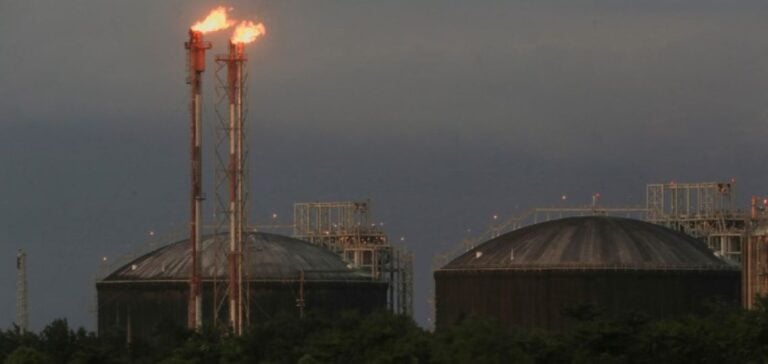Despite its ranking as the eighth largest natural gas reserve in the world, Venezuela is experiencing an unparalleled energy crisis.
Currently, national gas production stands at 4 billion cubic feet per day (bcfd), down from 8 bcfd in 2016, according to Gas Energy Latin America.
This dramatic drop is due to insufficient investment, aging infrastructure and international sanctions.
Maintaining stable production is crucial to meeting domestic energy needs and generating much-needed foreign exchange earnings.
The current situation poses major challenges, both for local supply and for exports to neighboring countries and other international markets.
Opposition strategies and proposals
Nicolas Maduro’s government is working hard to attract foreign investment in gas projects.
However, unpaid debts to many companies and US sanctions are severely hampering progress. Companies such as Repsol, Eni and Shell have entered into negotiations, but so far without any concrete results.
The opposition, represented by Edmundo Gonzalez, is proposing a restructuring of the energy sector, including an expansion of the role of the private sector and a restructuring of the country’s $150 billion debt.
Although this plan may take years to materialize, it is seen as a potential solution for attracting new investment and increasing gas production.
Regional Challenges and Implications
Venezuela’s gas crisis has regional repercussions.
Countries such as Colombia, Brazil and Trinidad & Tobago, as well as several European nations, are hoping that Venezuelan production will eventually ease their gas shortages.
These countries are lobbying the Biden administration for sanctions exemptions on Venezuelan gas projects.
In addition, gas production associated with oil extraction has led to an increase in gas flaring, a practice with harmful environmental consequences.
Projects to capture and reuse this flared gas are under discussion, requiring significant investment.
Potential developments and future strategies
The Venezuelan government plans to facilitate foreign investment by easing bureaucratic constraints for gas projects.
Development of the Mariscal Sucre gas field is a major ongoing project, with production scheduled for next year.
Internal discussions are also underway to offer the Rio Caribe gas field to foreign investors.
For these projects to be viable, PDVSA must repay its debts to existing gas producers.
The opposition is proposing partial privatization of the energy sector to create economic incentives and attract investment, while focusing on larger-scale liquefied natural gas (LNG) export projects.
Perspectives and reflections
Venezuela is at a crucial crossroads for its gas industry.
Boosting production is essential not only to meet domestic energy needs, but also to play a strategic role in the regional and global gas markets.
The future of this sector will depend on the policies adopted by the current or future government, foreign investment and the structural reforms needed to attract and maintain this investment.






















